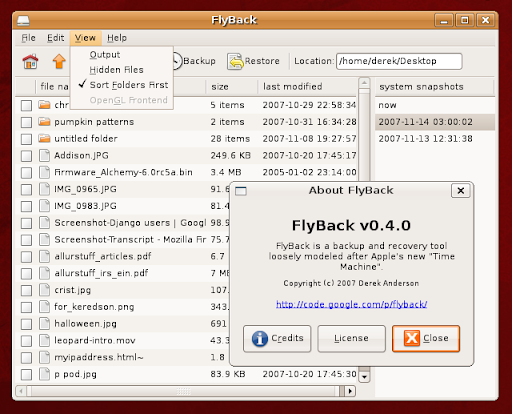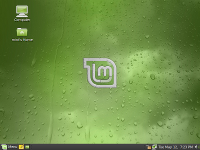Duplicity backs directories by producing encrypted tar-format volumes and uploading them to a remote or local file server. Because duplicity uses librsync, the incremental archives are space efficient and only record the parts of files that have changed since the last backup. Because duplicity uses GnuPG to encrypt and/or sign these archives, they will be safe from spying and/or modification by the server.
The duplicity package also includes the rdiffdir utility. Rdiffdir is an extension of librsync's rdiff to directories---it can be used to produce signatures and deltas of directories as well as regular files. These signatures and deltas are in GNU tar format.
Duplicity is still in Beta. As any software, it may still have a few bugs, but will work for normal usage and is in use now for large personal and corporate backups. If you have questions try the mailing list. Bug reports and bug fixes can be entered through the Savannah project page.
In theory many protocols for connecting to a file server could be supported; so far ssh/scp, local file access, rsync, ftp, HSI, WebDAV, and Amazon S3 have been written. Currently duplicity supports deleted files, full unix permissions, directories, and symbolic links, fifos, and device files, but not hard links.
Refer to the Changelog for overview of the recent changes and to GNU Changelog for the gory details from CVS.
The current stable release is 0.5.18, released May 20, 2009.
The current development release is 0.6.00, released June 6, 2009.
Older versions are also available for the budding historians in the downloads area.
Michael Terry maintains a Ubunta PPA (Hardy and Intrepid) for deja-dup and duplicity. Updates to the PPA will lag behind the above updates, so please be patient.
Edgar Soldin maintains ftplicity, a shell front end to duplicity for encrypted backups on non-trusted ftp servers.
All the code here is GPLed (free software). Duplicity is also part of the Fedora, Debian, and Ubuntu distributions of GNU/Linux.
Duplicity requires a POSIX-like operating system. It is best used under GNU/Linux. It also requires:
If you install from the source package, you will also need:
- Python development files, normally found in module 'python-dev'
- librsync development files, normally found in module 'librsync-dev'







